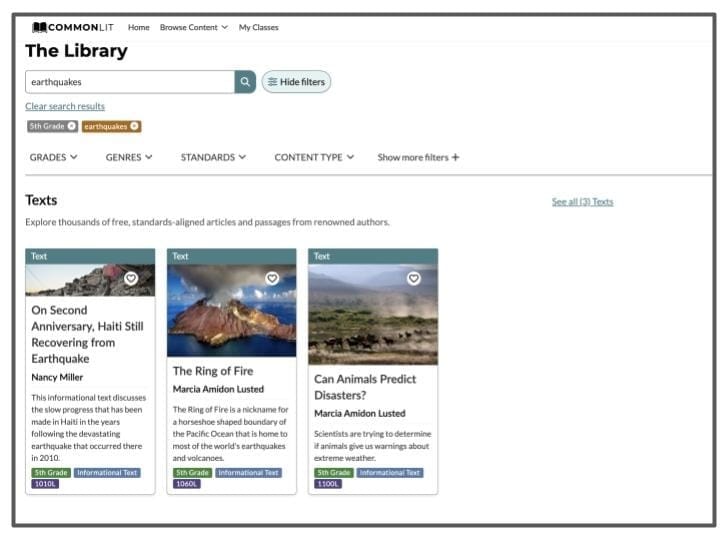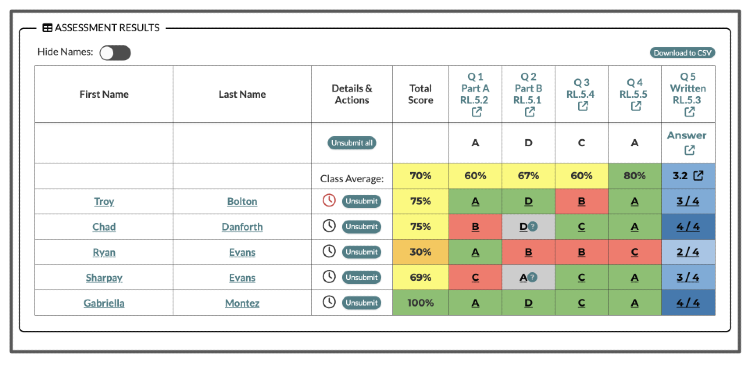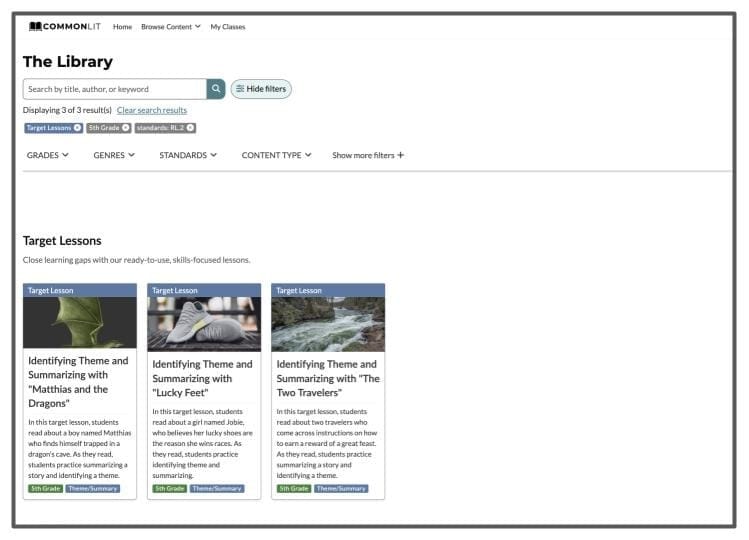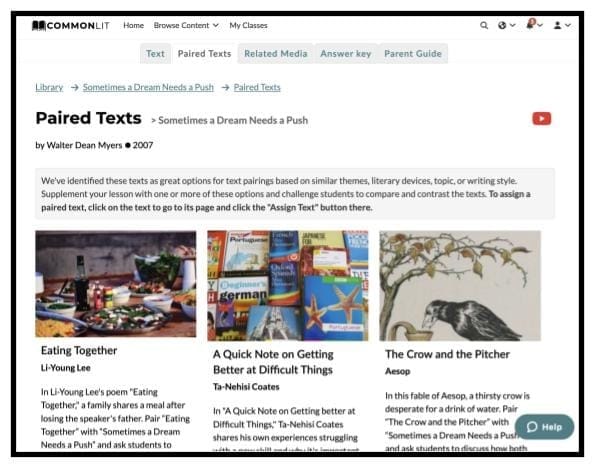Easy-to-use tools to help your team answer the 4 PLC questions
As the focus in education switches to spotlighting what students have learned vs what teachers have taught, more educators are discovering that Professional Learning Communities (PLC’s) in education and the PLC question cycle are solid ways to uncover what students are and are not learning. Indeed, the use of PLCs in schools has grown substantially over the past two decades as studies have proven their effectiveness, and more districts have embraced the concept.
Some teams have found, however, that it is sometimes difficult to get everyone on the same page in a timely and cohesive manner. They’ve learned that working through the four basic PLC questions popularized by Rick Dufour can be time consuming and challenging, but it is these four questions that create the foundation for all PLC work. These questions are:
- What do we want students to learn?
- How will we know they’ve learned it?
- How will we respond when they don’t learn?
- How will we respond when they already know it?
Discover some simple ways to leverage your Professional Learning Community, get the most out of your instructional time with students and answer the following PLC questions.
1. What do we want all students to learn?
This is the most straightforward of the Professional Learning Community questions as most states have required standards for each grade level. By using these standards to guide instruction, teachers can be assured of answering this first question correctly. One simple way to find vetted and research-based lessons that support rigorous instruction is to search in the CommonLit lesson library. The library features engaging content from award-winning authors that is searchable by theme, topic and standard. For example, if you need fifth grade lessons focusing on the topic of “earthquakes,” you can search the library for those.

2. How will we know students have learned it?
Tracking student performance on standards is something that can be time consuming, but in PLC meetings, it is critical that teachers come with the data from recent formative assessments. This assures that everyone can compare results and discuss next steps. The issue becomes when teachers don’t have the time to grade papers and assessments prior to the PLC meeting, and then data becomes out of date and some students may get lost on the wayside.
One way to get instant feedback about how your students are performing is to assign lessons from the CommonLit library. Each lesson comes with standards-based assessment questions that will provide your PLC with instant data after each selection. Using data from the multiple-choice questions from the lesson, teachers can see exactly which students need assistance on specific standards. Having access to this real-time data helps PLC data dives be much more effective and more timely. Alicia Intromasso, a 7th grade ELA teacher and the Special Education Coordinator in Lakewood, New Jersey, says this about CommonLit’s data features, “The data is a highlight for everyone. Having that data readily available has definitely helped with our Professional Learning Communities and our team meetings. It's an easy way to see right away what you need to reteach and different skills that you need to focus on.”

3. How will we respond when they don’t learn?
At this juncture in the Professional Learning Community question cycle, it’s important to circle back and give the students who haven’t mastered the assigned skill some reinforcement, additional instruction, and subsequent practice. Waiting to see results from a summative assessment will be too late for these students as their skills gaps will just grow wider. Judiciously providing extra support at this point in the PLC question process is key and a step that is sometimes overlooked.
Some students may need small group instruction while others may benefit from online practice. One tool that teachers can use when answering this question in the PLC cycle is Target Lessons from CommonLit. Using the standards-based data from a CommonLit lesson, teachers then know exactly who is struggling with which standard. With this information, they can assign standards-focused additional instruction and practice to just the students who need it. Target Lessons are searchable by standard and grade level, making it simple to provide a robust response to students who need additional support.
Going back to the earlier example, if a teacher sees that two students need additional practice with finding Themes in a work, they can search for Target Lessons that fit their grade level and the standards, in this case RL 5.2. After a quick search, there are three Target Lessons that give additional instruction, more practice, and more subsequent data to aid the teacher. These Target Lessons can be assigned to just those students who need the additional practice, and there are selections for a variety of skills including finding the main idea, author’s point of view, analyzing text structures and more.

4. How will we respond when they already know it?
While this may seem like a good problem to have, students who are already proficient on a standard can still be a challenge. Wasting students’ time with unnecessary work on skills that they’ve already mastered is not motivating and won’t help to push them to the next level of proficiency. Instead, when students have already shown mastery of a skill, it’s important to challenge them with work that is engaging and still able to provide opportunities for growth. Options for extension activities include writing prompts related to a previous lesson, additional research on the topic being studied, or giving students an additional reading assignment at a higher Lexile or difficulty level.
To assist with this last option, teachers can use the Paired Text feature on CommonLit. Each lesson in the CommonLit library features a tab for Paired Texts which are lessons that align in theme or topic to the original text. If for example the fifth grade class in the examples above had a lesson on theme from “Sometimes Dreams Need a Push,” and the teacher has students who’ve already mastered the standard, they can look for more challenging options that are aligned to the same theme or topics in the Paired Texts section.

Creating Communities for Learning
Moving from a teacher-centered conversation about what was taught to one that is student-centered and covers what was learned takes time and the willingness to be open to new ideas and new strategies. Professional Learning Communities are a tool to make this shift easier for teachers and ultimately make learning more beneficial for students. CommonLit can support your team as you embark on your PLC journey.


